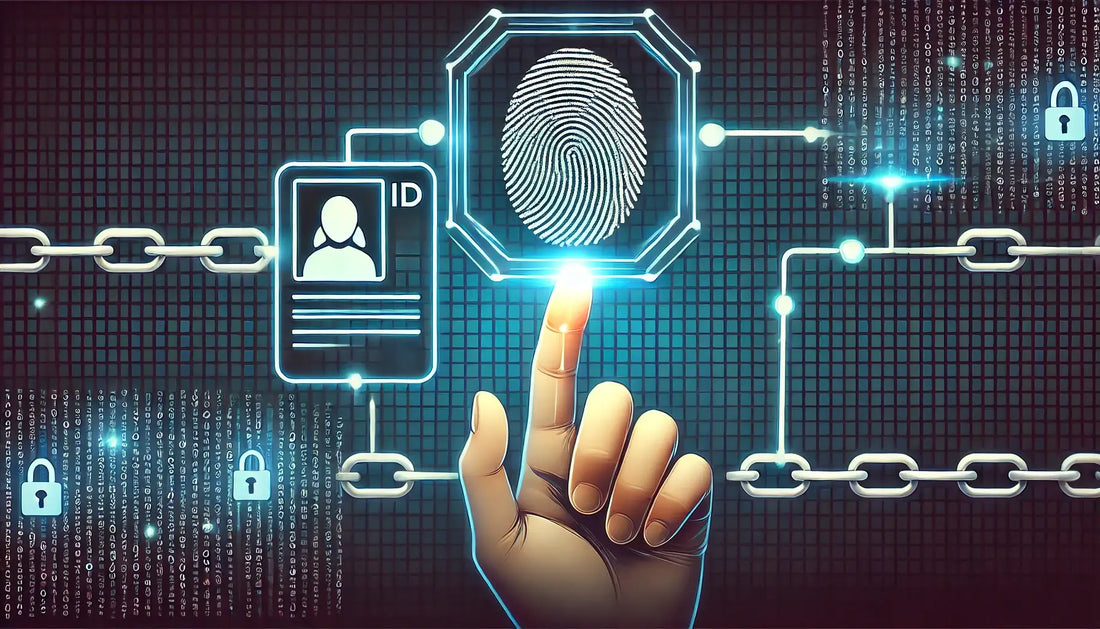
The Role of Blockchain in Revolutionizing Identity Verification
Share
In an increasingly digital world, identity verification has become a cornerstone of secure online interactions. From opening bank accounts to accessing healthcare services, the need for reliable and efficient identity verification is critical. Blockchain technology is emerging as a transformative solution, offering enhanced security, privacy, and efficiency compared to traditional methods. This article explores how blockchain is revolutionizing identity verification and the implications for individuals and organizations.
Challenges with Traditional Identity Verification
Traditional identity verification processes rely heavily on centralized databases and paper-based documentation. These systems are often plagued by inefficiencies, vulnerabilities, and high costs. Key challenges include:
- **Data Breaches:** Centralized databases are prime targets for cyberattacks, compromising sensitive personal information.
- **Fraud and Identity Theft:** Weak security measures and outdated systems make it easier for criminals to commit fraud.
- **Inefficiency:** Verifying identities across borders and institutions can be time-consuming and costly.
- **Lack of Privacy:** Users often have little control over how their personal data is stored and shared.
How Blockchain Addresses These Challenges
Blockchain's decentralized and secure nature makes it a game-changer for identity verification. Here’s how it addresses the shortcomings of traditional systems:
Decentralization
Unlike centralized systems, blockchain stores data across a network of nodes, reducing the risk of a single point of failure. This decentralized approach ensures that no single entity has complete control over the data, enhancing security and resilience.
Immutability
Data stored on a blockchain is immutable, meaning it cannot be altered or deleted without consensus from the network. This ensures the integrity of identity information and makes it virtually tamper-proof.
Enhanced Security
Blockchain uses advanced cryptographic techniques to secure data. Each transaction is encrypted and linked to the previous one, creating a secure chain of records. This makes it extremely difficult for unauthorized parties to access or manipulate the data.
User Empowerment
With blockchain-based identity solutions, users have greater control over their personal information. They can choose which data to share and with whom, reducing unnecessary exposure of sensitive information.
Applications of Blockchain in Identity Verification
Blockchain is being applied across various sectors to revolutionize identity verification. Here are some notable use cases:
Digital Identity Wallets
Blockchain-based digital wallets allow users to store and manage their identity credentials securely. These wallets can be used for multiple purposes, such as verifying age, employment history, or academic qualifications, without exposing additional information.
KYC (Know Your Customer) Processes
Financial institutions and businesses can use blockchain to streamline KYC processes. By storing verified identity data on a blockchain, institutions can access the information they need without duplicating efforts, reducing costs and enhancing compliance.
Cross-Border Identity Verification
Blockchain simplifies identity verification for international transactions and travel. A blockchain-based system enables secure and efficient verification of identity documents across borders, facilitating global commerce and mobility.
Healthcare and Patient Records
In the healthcare sector, blockchain ensures secure access to patient records while maintaining privacy. Patients can share their medical history with healthcare providers without compromising sensitive information.
Government Services
Governments can leverage blockchain to create secure digital identities for citizens. These identities can be used for voting, tax filing, and accessing public services, reducing bureaucracy and fraud.
Benefits of Blockchain-Based Identity Verification
Adopting blockchain for identity verification offers numerous benefits:
- **Improved Security:** Strong encryption and decentralized storage reduce the risk of breaches.
- **Cost Efficiency:** Automation and shared infrastructure lower verification costs.
- **Enhanced Privacy:** Users have control over their data and can limit exposure.
- **Faster Transactions:** Instant verification processes reduce delays.
- **Global Compatibility:** Cross-border functionality supports international use cases.
Challenges and Considerations
While blockchain offers significant advantages, there are challenges to address:
- **Scalability:** Blockchain networks need to handle large volumes of transactions efficiently.
- **Interoperability:** Ensuring compatibility between different blockchain systems is crucial for widespread adoption.
- **Regulation:** Governments and organizations must establish clear regulatory frameworks to govern blockchain use.
- **User Education:** Educating users and institutions about blockchain technology is essential for effective implementation.
Future Outlook
As blockchain technology continues to evolve, its impact on identity verification is expected to grow. Innovations in scalability, interoperability, and user interfaces will make blockchain-based solutions more accessible and practical. Collaborations between governments, businesses, and tech companies will drive the development of standardized frameworks and applications.
Conclusion
Blockchain technology is revolutionizing identity verification by providing a secure, efficient, and user-centric approach. By addressing the limitations of traditional systems, blockchain is paving the way for a future where individuals and organizations can interact with confidence and trust. As adoption increases, blockchain will play a pivotal role in shaping the digital identity landscape and securing the connected world.
